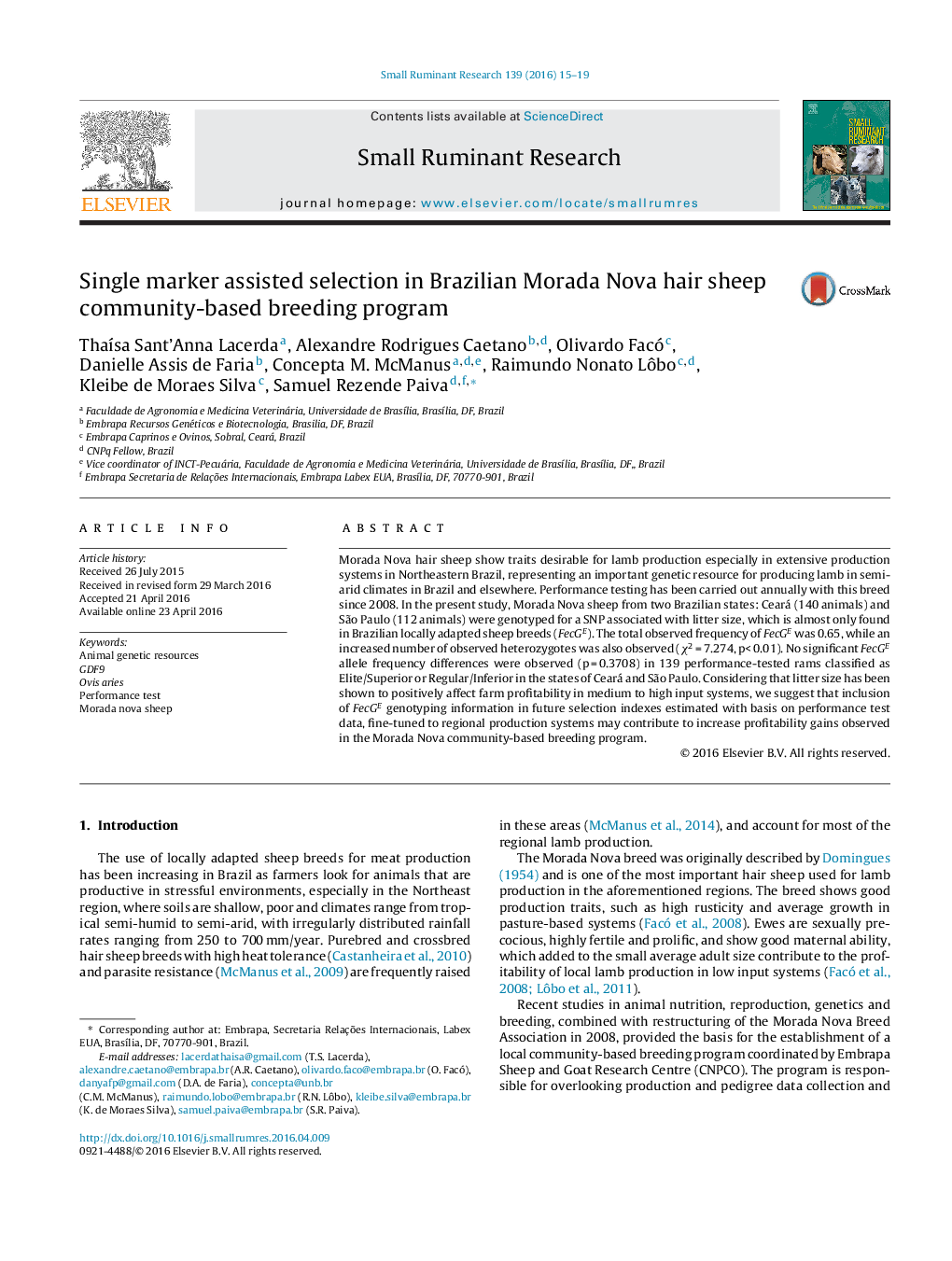| Article ID | Journal | Published Year | Pages | File Type |
|---|---|---|---|---|
| 2456660 | Small Ruminant Research | 2016 | 5 Pages |
•It was confirmed the existence of FecGE allele in Brazilian Morada Nova hair sheep breed.•No significant FecGE allele frequency differences were observed in 139 performance-tested rams.•We suggest inclusion of FecGE genotyping information in future selection indexes estimated on performance test data.
Morada Nova hair sheep show traits desirable for lamb production especially in extensive production systems in Northeastern Brazil, representing an important genetic resource for producing lamb in semi-arid climates in Brazil and elsewhere. Performance testing has been carried out annually with this breed since 2008. In the present study, Morada Nova sheep from two Brazilian states: Ceará (140 animals) and São Paulo (112 animals) were genotyped for a SNP associated with litter size, which is almost only found in Brazilian locally adapted sheep breeds (FecGE). The total observed frequency of FecGE was 0.65, while an increased number of observed heterozygotes was also observed (χ2 = 7.274, p< 0.01). No significant FecGE allele frequency differences were observed (p = 0.3708) in 139 performance-tested rams classified as Elite/Superior or Regular/Inferior in the states of Ceará and São Paulo. Considering that litter size has been shown to positively affect farm profitability in medium to high input systems, we suggest that inclusion of FecGE genotyping information in future selection indexes estimated with basis on performance test data, fine-tuned to regional production systems may contribute to increase profitability gains observed in the Morada Nova community-based breeding program.
